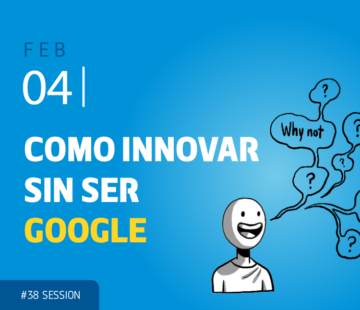Co-Session #32: What is value to Millennials and Generation Z?

What is value to Millennials? And for the teenagers who follow them, the so-called Generation Z? What do these young people value? But also, what are their values? Do these two generations share the same values or is it possible to appreciate differences between them? Are companies ready to create products for them, to respond to their needs and demands as consumers? And to capture, retain and take advantage of their talent?
In our Co-Session 32 we tried to answer these and other questions related to the people that were born or grew up during the turn of the millennium.
Who are Millennials and Generation Z and what are they like?
But, who are Millennials? Alfons Cornella, founder of Co-Society, wanted to state clear a first conclusion: “This is about stereotypes”, and many of them are incorrect. So we learnt that many people consider Millennials to be highly prepared, but also selfish. They are more enterprising than previous generations, but are still usually lacking the necessary experience. They want to have a positive impact on the world, but are very negative towards the traditional tools that society offers them to do so. There are a couple of factors that clearly distinguish them from previous generations: their constant connectivity and the fact that, in terms of global economy, they can be considered the biggest group of consumers in the world.
And what about the “Generation Z”? Can they be considered different from their predecessors? Mónica Alonso, partner and CEO of Co-Society, took charge of them. Again, constant connectivity is a cross-cutting factor, although in this case almost exclusively mobile. Beyond that, we have stereotypes once more. Many of them consist in a more extreme version of the trends and behaviours observed in the previous generation. But there are also some other features more exclusive and typical of those who have lived most of their lives during the last economic crisis, which seems to have made them more realistic and somewhat more mature.
Workshops about value and values
Going back to the title of this session, we were especially interested in learning which elements really represent value for these new generations. For companies and organizations, not knowing these values today means missing the opportunity to meet the demands and needs of a demographic group with increasing importance and influence. That’s why we worked in groups made up of members of Co-Society’s fellow companies and Millennials and Gen Z teenagers that were invited to our session. They had to identify and agree on those values using the elements of value pyramid created by Bain, which is based on Maslow’s famous pyramid. This new pyramid identifies 30 different values into four levels: functional, emotional, life changing and social impact.
When Millennials did this exercise we were able to draw some interesting conclusions. For example, in the functional segment of products and services, the values of simplicity and time saving stand out. Lower costs are also demanded, but as long as they do not affect quality—an element that was scarcely mentioned, perhaps because these young people already consider it a requirement by default. On the emotional segment, value is centred around design, playfulness and self-reward. We later repeated the same exercise with Gen Z teenagers as the “object of study”. We observed some differences, such as a greater demand for variety and experimentation, and a greater desire that products be aesthetic as well as useful.
Case Studies: Badi and Metropolis Lab BCN
We also had time to get to know first-hand the experience of some companies where Millennials are the main focus, either as entrepreneurs and target audience, or as representatives of nearly all of their employees. Álvaro Córdoba, co-founder of Badi, told us about the peculiarities of a start-up created for Millennials and by Millennials. Badi is a platform that allows you to share a flat with the ideal person according to your profile and requirements. This demand is typical of this generation and a business opportunity that none of the traditional companies in a market as mature as the real estate industry were able to anticipate and guess.
For his part, José C. Nascimiento, CEO of Metropolis Lab BCN, shared with us the experience of working with a team of professionals made up of only people from this new generation. Founded by SEAT, Metropolis Lab operates independently with the aim of reinventing mobility. As Nascimiento confessed, his main challenge as CEO is precisely hiring and keeping the type of young talent that the company needs. To do so you need to clearly understand what young professionals want and value. According to Nascimiento, the major shift is that motivation doesn’t come anymore from having a high salary, but rather from factors such as participating in a project with a big impact or being respected as a person.
